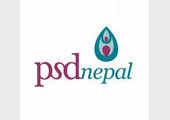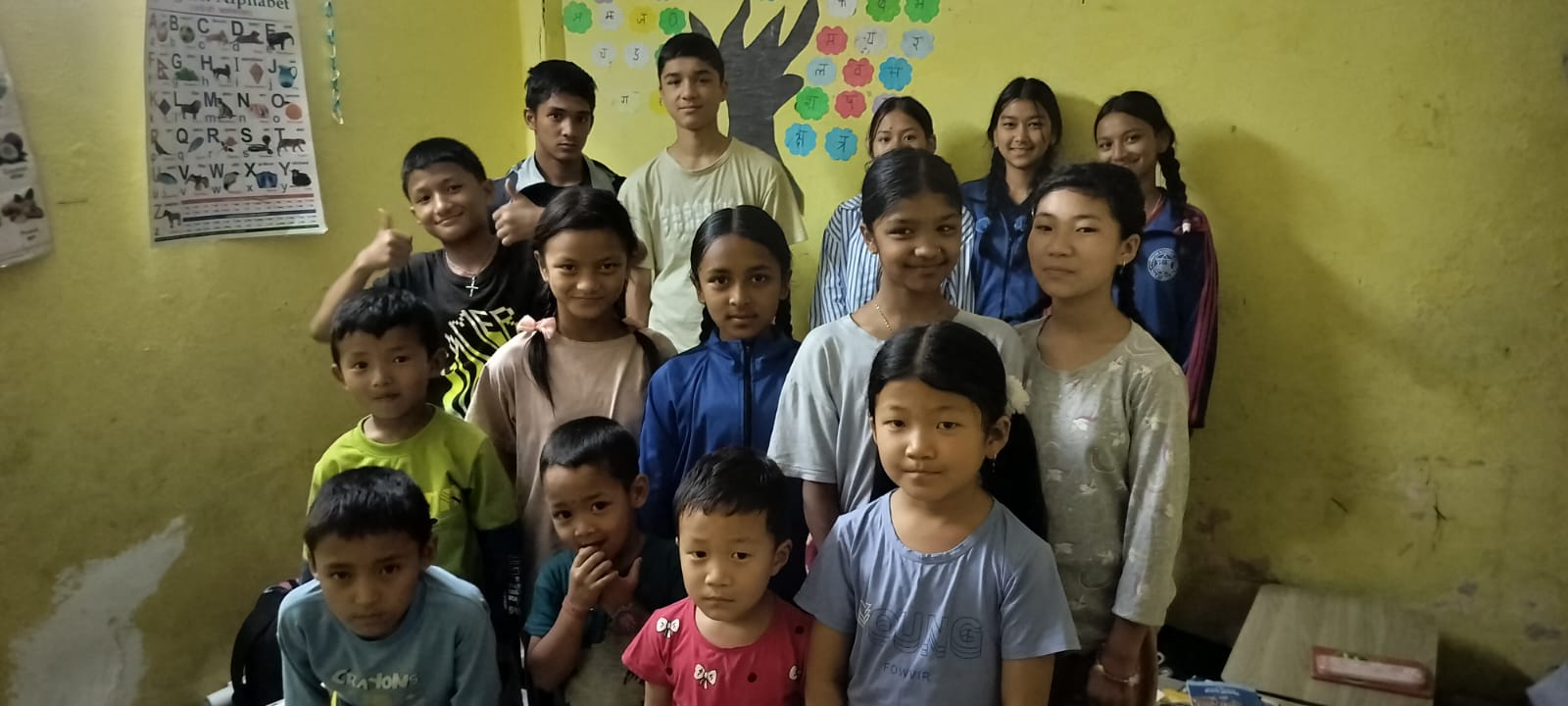
Wastepickers in Nepal
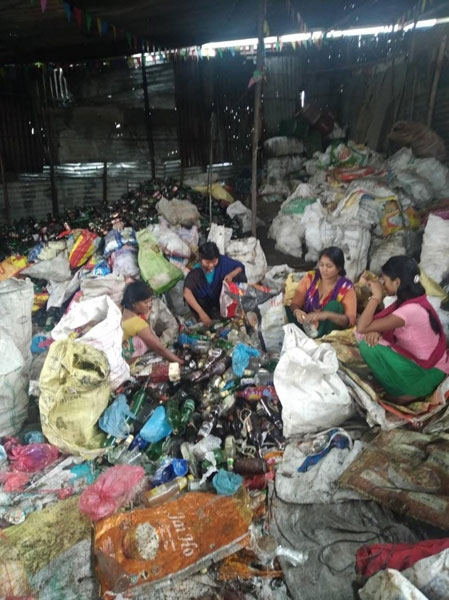 In Kathmandu, Nepal, dire poverty forces thousands of people to make a living from picking through rubbish along roadsides, in rivers, streams and drainages, and in garbage dumps. These wastepickers sell materials such as plastic, metal, cloth, and paper that they have collected to various recycling companies. It’s a hand-to-mouth existence, earning barely enough to feed their family.
In Kathmandu, Nepal, dire poverty forces thousands of people to make a living from picking through rubbish along roadsides, in rivers, streams and drainages, and in garbage dumps. These wastepickers sell materials such as plastic, metal, cloth, and paper that they have collected to various recycling companies. It’s a hand-to-mouth existence, earning barely enough to feed their family.
In spite of their important role, wastepickers – most of them women and children – lack formal acceptance in the official Municipal Waste Management system of Kathmandu. Women are especially vulnerable and exposed to numerous inequalities and health risks.
Unforgotten Nepal
Thanks to your generous support, we are launching a new program in Kathmandu, Nepal for child wastepickers! We first performed a site visit in January 2015, but unfortunately, a major earthquake decimated Kathmandu shortly thereafter. Our efforts switched to disaster relief instead. Years later, we are happy to report that we are in a position to start a program for wastepickers again.
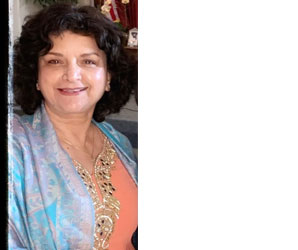
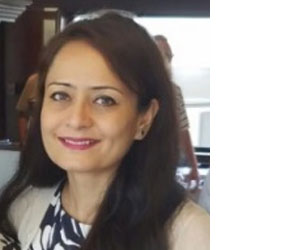
Feel free to reach out to them directly if you are interested in volunteering at shalini.puri@unforgotten.org and/or sally.brady@unforgotten.org
Partnerships and Stakeholders
The Unforgotten will partner with the Partnership for Sustainable Development (PSD) in Nepal to organize a series of programs aimed to address the needs of wastepickers in Kathmandu. PSD is a local Nepalese charity that shares our vision to eliminate extreme poverty by empowering the most vulnerable.
The aim of this partnership and the resulting program is to provide wastepickers, particularly children and their mothers, with sustainable skills that can help them achieve better standards of living through formal education, vocational, and practical work skills training.
Projects
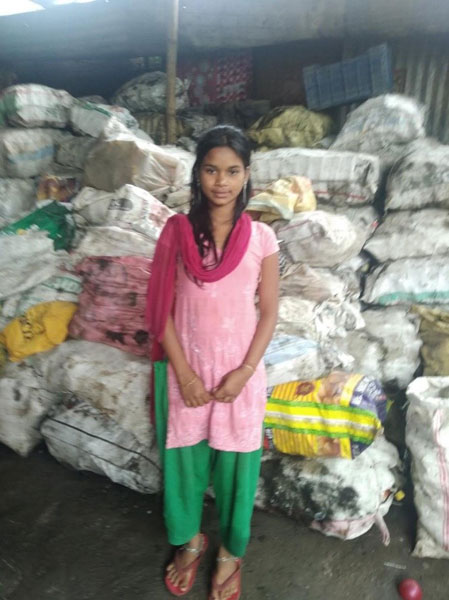
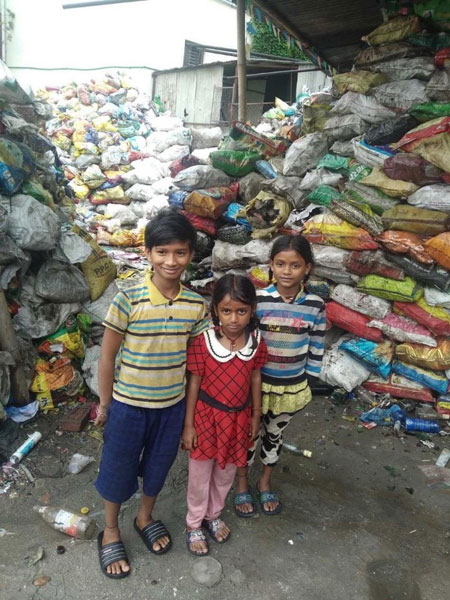
The program will target 15 child wastepickers from Kathmandu initially, with plans to expand in the future. Formal and non-formal education will be provided for these children at schools; as well as a chance for ‘catch-up education.’ In addition to schooling, these children will be given a midday meal, assisting in improving their nutrition and enabling them to better concentrate on their studies while also providing an incentive for attendance.
In addition to the children, women and adolescents from the children’s families will be provided with opportunities to begin skills training courses that will help them find ways to earn a living away from the dumpsite. Along with the training, the program will assist them in finding suitable employment or establishing their own small business once they have graduated from the skills training course. Additionally, we plan to train mothers to be more aware of safety, hygiene, reproductive health, and nutrition. They will also be encouraged to join together in group saving schemes to create welfare funds for times of need, and to help save for their children’s future.
Finally, we will be working to raise awareness of the needs and rights of wastepicking communities. We will be ensuring the community itself knows what rights it has and how to access them. Through various community workshops, The Unforgotten and PSD will work with the children and their families to help them understand the importance of education, health, hygiene, citizen rights, and raise awareness on the impact of drugs and sexual abuse.
Funding
Funding will help to cover all expenses for the children’s education and living expenses until the age of 16. Those older than 16 will be funded to attend skills training courses. Additional vocational and skills training will be targeted to the older children. This training will be designed and organized to assist these youths in generating income and running their own independent businesses to help improve their quality of life and assist them in getting off the streets.
Currently, we are working on selecting the children who will be part of this initial program phase. The aim is to have an even divide of boys and girls.
Profiles of children currently in our Wastepicker program
Sambriddi (6yrs old / 3rd grade)
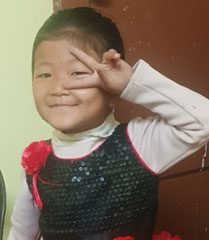
When I grow up, I dream of becoming a police officer. I want to help set the standards for society and ensure that rules and regulations are followed to keep my community safe and fair for everyone.
Prabhas (3yrs old / Nursery)
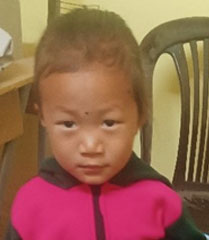
Though I am young, I am determined and resilient, always ready to take on new challenges and opportunities that come my way.
Sujan (17yrs old / 10th grade)
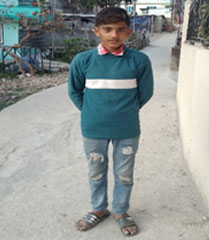
I am determined to get an education so I can make my mother proud and ensure that all her sacrifices are worthwhile. In my free time, I love beatboxing and rapping, and I’m confident that one day, my talents will be shared with the world.
Dikshya (12yrs old / 5th grade)
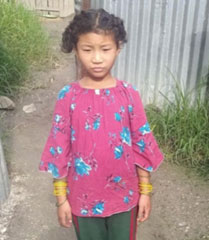
Witnessing the deep love my parents share for each other and for my brother and me has inspired and propelled me to become a doctor one day. I want to help those who are suffering, even if they cannot afford medical care.
Yujan (6yrs old / 1st grade)
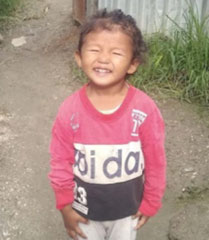
I look up to my older sister and admire her dedication to her studies. Watching her inspires me to embrace the same work ethic and commitment to education. My world may be small, but as long as I have my family and the opportunity to learn, I know I’ll thrive and succeed.
Dibya (13yrs old / 6th grade)
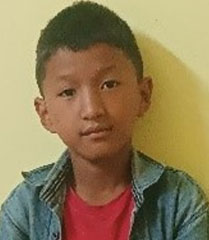
In my free time, I help my mother with chores like washing clothes and dishes. I believe in equality and embracing change. Just as we modernize technology, we should also work toward normalizing household roles in society.
Dirpa (9yrs old / 4th grade)
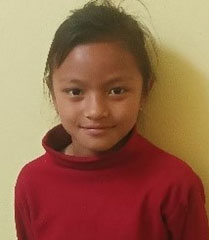
Sometimes, at school, the other girls make fun of me or exclude me because I don’t dress like them or have the same things they are fortunate to have. When I feel sad, I find comfort in my books, where I can immerse myself in stories and find peace and serenity.
Anjana (14yrs old / 7th grade)
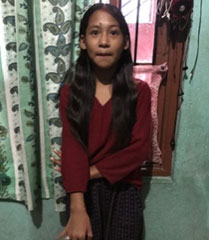
One day, I hope to become a health worker, so I can provide care and guidance to those who need it, especially those who don’t know where or how to ask for help.
Anmol (6yrs old / 1st grade)
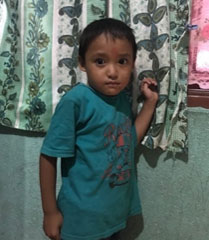
I enjoy doing my homework after school, especially because my older sister gives me personal attention, making sure I am well-prepared and get good grades.
Dipsan (5yrs old / Lower Kindergarten)
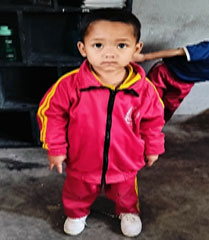
At school, my teachers nurture my curiosity and have generously given me used uniforms and books to help me build a brighter future. Their support gives me hope, not just for myself, but for others who share similar journeys.
Kristina (9yrs old / 3rd grade)
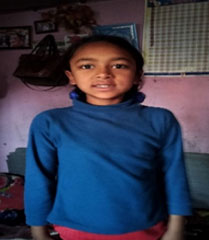
I have a deep respect for the healthcare industry and hope to become a nurse when I grow up. I want to provide care and comfort to those who are suffering, and give back to my community in a meaningful way.
Amrit(10yrs old / 2nd grade)
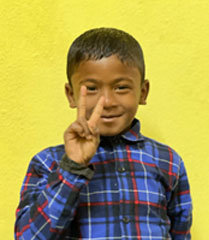
I know that getting an education will open doors for me, allowing me to grow into a reliable and steadfast individual who can care for my family and create a better future for all of us.
Sunil (11yrs old / 3rd grade)

When someone believes in me, I do my best to excel and make them proud. Your support and reassurance are what motivate me to keep going and succeed.
Sushil (12yrs old / 6th grade)
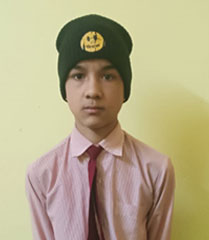
I dream of joining the Army one day, standing tall and serving my country with pride. Through this, I hope to help others and make a meaningful difference.
Sushmita (8yrs old / 3th grade)

I aspire to study nursing because I want to help alleviate poverty and make a difference in society by providing care to those in need.
Roshan (15yrs old / 7th grade)
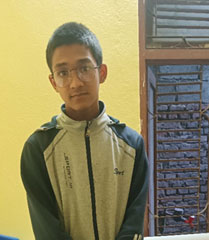
I aspire to become a skilled web developer because I believe our future lies in technology, and I want to be part of shaping that future. Through my skills, I hope to create innovative solutions that make a positive impact on people’s lives.
Sanjita (11yrs old / 5th grade)
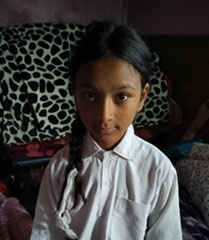
My mother has been struggling with health issues, and seeing her challenges has inspired me to become a healthcare worker. I want to provide support to women like my mother who need timely diagnosis and treatment.
Soni (14yrs old / 8th grade)
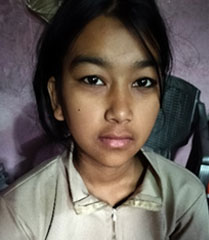
Recently, my mother suffered a severe accident, and it saddens me to see others not take responsibility for their actions. When I become a police officer, I will ensure that my unit, my division, and all those under my leadership operate with the utmost respect and morality toward everyone.
Saurav (13yrs old / 8th grade)
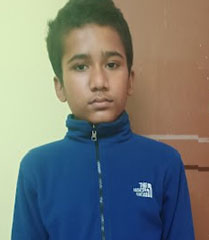
Lately, I’ve been fascinated by science, especially learning about microscopes and how they allow us to observe cells that are invisible to the naked eye. One day, I will become a scientist, making discoveries and breakthroughs with my very own microscope.
Other Personal Stories
Some of the prospective children for the program have shared these stories with staff on the ground. All of these wastepickers want to enroll in school like other children and to have the freedom to be children without the responsibility of earning income to help support their families. However, they are all currently dependent on waste picking to ensure that their families’ basic needs are met. The Unforgotten and PSD want to help these children and uplift their family without losing out on their rights and opportunities for education.
Kamal Rai and Maya Rai from Balaju
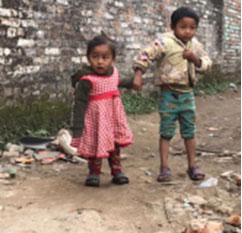
Maya Rai: Girl 3 yrs. old
Hello, I am Kamal, born in 2016 and my sister is Maya, born in 2018. We live in Balaju with our father. Our mother no longer lives with us and we do not see her very much. I start and end my day collecting trash for recycling. I only go to school if my father drops me off, which does not happen very often. He usually leaves in the morning every day and comes home drunk in the evening. Our neighbor is a very kind lady and feeds us, otherwise we would go hungry. We want to go to school every day.
Priyanka Sahani & Sandhya Sahani from Tokha
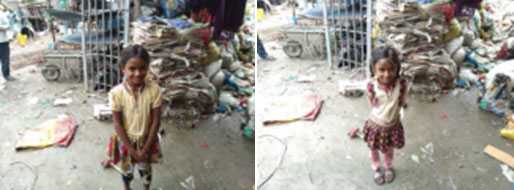
Hello, my name is Priyanka, born in 2013, and my sister is Sandhya, born in 2015. We live with our mom in Tokha. Our mother works at the recycling company. We do have a father but he rarely comes to our house. Every day my sister and I go to collect cardboard paper from the market. It is usually either thrown on the road or we find them around the dumping areas. We both collect the cardboard paper in a jute sack and come back home and give it to our mother. My sister and I like to wear the same clothes and love playing with our doll, which we found while collecting cardboard. We often go to the local shop to buy candy from the coins we find on the streets and temples. We want to go to school and would love to wear school uniforms.
Nirma Bin & Rabi Bin from Kathmanu
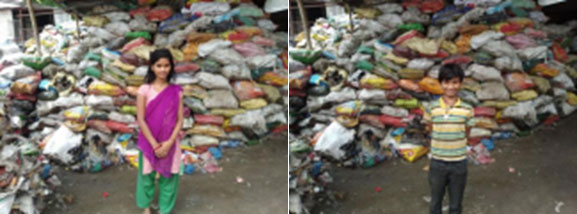
Hello, I am Nirma, born in 2011, and my brother is Rabi, born in 2013. We live with our parents in Kathmandu. I have always seen both my mom and dad working in the plastic recycling center day and night for many years. My brother and I began helping our mom with segregating plastics after she started complaining about her back aching from bending over to sort the plastics. We also work to collect tin and metal daily from the roadside, for which we get paid 100 rupees ($0.83) per day. Sometimes I have to go alone to collect the tin and plastics but I would rather go together with my brother. We wish we could go to school like other children.
Sunil Chaudhary and Amrit Chaudhary from Tokha
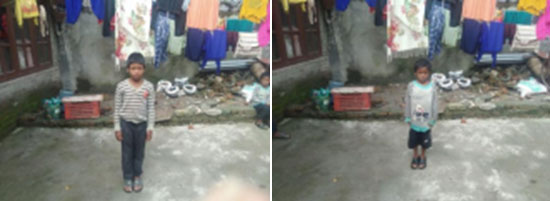
Hello, I am Sunil, born in 2012, and my brother is Amrit, born in 2015. We live with our mother in Tokha. Our father used to work at a local paper factory but the factory shut down. Our father had a huge drinking problem so our mother took up odd jobs to feed the family. Our father eventually left us and our mother now works as a waste picker at the recycling center. We live at the recycling center, where my brother and I also work. We also collect wastes from the city as part of our job. My brother and I do not get paid for our work since we are allowed to live at the recycling center. Our mom is not really happy about us working as waste pickers and she would like us to go to school.
Abdhesh from Kathmandu
“Hello, I am Abdhesh, I don’t know my age. I live under the pool of Balaju with my grandparents. My grandparents go to new road everyday in the morning at 7AM and come back home at 7PM. All they do is sit in the roadside of the new road area and beg for money and food with pedestrians. They do not know that I pick waste while they are not at home. With bunch of my friends who live nearby, we go to collect electronic waste from the riverside dumping zone. I barely find any in my whole 5-6 hour of search. Luckily, when I find any electronic waste, I get paid from the leader of the waste collector of my area. My earnings are not guaranteed sometimes I earn nothing and sometimes I earn Rs 50-100 (50 cents to $1 USD) in a day. I really wish to help my grandparents to sustain our lives. I don’t like to see them begging.”
Sarita from Kathmandu
“Hello, my name is Sarita and I am 12 years old. I live in a one room with my 3 siblings and a single mother. We dine, sleep, cook, and study in the same room. My house is not really in good condition, we live in the building which isn’t well maintained thus its cheap for us to afford. Every day I wake up at 5:30 in the morning to start waste picking. I walk for 40 minutes to get started with my work every day. I search for valuable scrap from the pile of garbage to give it to the nearby recycling company. I come home by 9AM. Then I help my mother with the daily chores. Monthly I get NPR 800 ($6.75 USD) from the recycling company which I give it to my mother. She maintains our livelihood from the same income. I used to study in a government school but because of the pandemic I don’t go to school anymore. I want to go back to my school and study.”
Jangmo from Kathmandu
“Hi, I am a waste picker from Kirtipur. Every day in the morning and evening time, I collect the waste (only cardboard papers and plastic bags) from the road, dumping site, dustbins, garbage area and give back to the master. I don’t have good clothes to wear and while collecting items, my clothes become dirty because of which people often calls me by names which I don’t like. I often share this to my mother who works at the master’s company. She tells me, once I grow up, I wouldn’t have to collect wastes, and everyone will start respecting me. This gives me hope to wake up every day and work. I wish to grow up soon.”
Dipendra from Kathmandu
“Hello, my name is Dipendra, I know little English because I have studied up to 5 standards. I love studying, my favorite subject is Science, but unfortunately my father left my mom and since then we have been abandoned by our relatives as well. None helped us. My mother have an illness because of which she cannot work much. She usually stays alone and sad. I didn’t know how could I make things a little better for her until one uncle helped me to find the recycle house. I go there every day from morning 9AM to 6PM and separate different types of waste. I have to climb up in the ladder of waste and separate it. Often the smell gives me bad headache, but it I have adapted slowly. I earn 3,000 Rs ($25 USD) a month which helps me to pay the rent of our house and food. I like to see other people in my community while they are going to school; they don’t talk with me because they think I am not right person to be friends with. The best part of my day is when I get to sleep in my mother’s arm.”
Mendo from Kathmandu
“I am Mendo, I am 15 years old. I have been waste picking from 5 years now. Every morning I carry a sack on my back and start looking for tin, alumni item. I walk for 4-5 hours every day in search of these items. Sometimes I walk to different district in search of these items. I like days when there are less heat because due to sun and hot weather my working speeds slows down and because of that I cannot fill the sack. I get paid according to the weight of my products. On good days I find 5kgs of tins and aluminum and on bad days I don’t get any. Per kg I get 10 Rs (10 US cents). I save this money for myself. I wish one day my savings can be helpful for my sister’s disability.”
Your Donation Will Help!
If you wish to contribute to this program, please click on the button below. Your donation will go directly and entirely towards projects. None of your donation will go towards administrative expenses, fundraising, or overhead.

